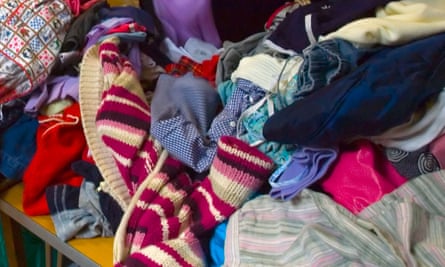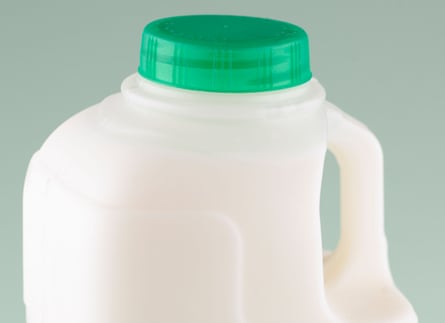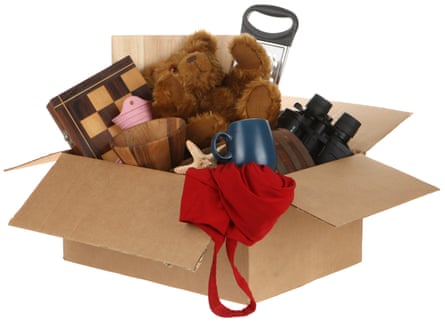
How to help support good causes during the cost of living crisis
UK households are under pressure at a time when charities are needed more than ever but there are still ways to contribute
Many charities have had a tough time of it during the cost of living crisis. It is clear that lots of people still want to support good causes, and that charities and voluntary organisations are needed more now than ever. But it is also clear that there is less money and time to go round.
The Benefact Group’s value of giving report for 2022 showed that, although more people donated to charity last year, they gave less. UK charitable donations totalled £4.3bn in 2022 compared with £9.3bn in 2021.
Start small and local
Donate items to local charity shops or a local cause. Or volunteer – charities often value your time as much as cash.
If you have children at school, you may want to join, or start, a parent-teacher association.
How about asking family and friends to sponsor you for shaving off your hair or doing a walk or run? Or ask them for donations to sell at boot fairs or jumble sales.

Check your rubbish
Items regularly thrown out can often be used to raise money.
For example, contact your nearest Crisp Packet Project group and send in your used, clean crisp packets so they can be turned into items such as blankets for homeless people.
Or donate milk bottle tops to raise money for Friends of Water Search and Rescue Team. A recycling company turns them into pellets for making hard plastic items such as traffic bollards and traffic cones and makes a donation to the charity.
Alternatively, you can raise funds for your charity, school or not-for-profit organisation with your used ink cartridges. To find out more, go to the website of the Recycle4Charity programme.

Raise money on your birthday
Set up a fundraiser for your Facebook contacts to enable them to make a donation instead of giving you presents and cards.
Two years ago, Flic Louise Everett raised £500 for Refugee Action for her 50th birthday, while Laura Schofield raised £250 for mental health charity Mind. Schofield says she “asked my FB [Facebook] friends to donate £5 if they had considered themselves to have struggled with a mental health disorder … I was really touched by the support”.
Johanne Stimson’s mother died from motor neurone disease (MND) in 2008 within 10 months of diagnosis. Johanne works with a local MND committee and fundraises for the Motor Neurone Disease Association. She says it just made perfect sense to her to use the fundraising opportunities offered by Facebook to get information out to all her contacts who wouldn’t necessarily know why MND is close to her heart. She advises fundraisers to “post once in the morning and once in the evening every day of a two-week campaign. Post on LinkedIn, too. I’ve hit targets of about £300-500, seeing money go in each time I post.”
Donate without it costing a penny
Easyfundraising partners with more than 7,000 brands, including big names such as Amazon, John Lewis and Marks & Spencer, who will donate part of your spending to a cause of your choice. Most brands pay a percentage of what your with them as a donation, although some retailers pay a flat amount. Go on to the site to find or register a cause.

Give as you Live Online works in a similar way.
Utilise your skills and contacts
Think about organising an event. Speak to your family, friends and professional contacts to see what you could do. It could be a karaoke night, cake stall, street party, talent show or charity auction.
Dave Blood was the recipient of two life-saving open heart surgeries. The second provided a mechanical aortic valve, costing the NHS more than £30,000. A former standup comedian, he puts on an annual comedy night in aid of the British Heart Foundation, “Cardiac Comedy”, to become “valve neutral”, and has raised about £27,000 since 2013. Acts give their time for free. Blood says: “After the first one it was much easier as everyone had a good time, so they returned, and each year it’s grown.”
Join forces
Think about the skills you could offer to others in creating something and reaching more people.
Becca Maberly, in touch with the illustrator Stacie Swift on Instagram, asked her about creating something to help mums feel less alone. Buggy Tag was born. Hung on your buggy, it signifies to others that you are open to having a chat or helping out a fellow parent. All of the profits go to the charity Pandas. Swift recommends “finding people who align with your values and whose skills complement yours”.

Declutter for charity
The decluttering expert Janine McDonald says that clearing the clutter “is good for your mind, heart and soul”, and you can raise money for charity at the same time. Some charities will come and pick up the boxes of stuff you have decluttered if you don’t want to sell the items yourself.
Pay it forward
Undertake some random acts of kindness, which could include food bank donations, volunteering or even offering some kind words.
In 2018, after fertility treatment and IVF, Lauren Frost lost her son Leo only eight days after he was born. Lauren and her husband set up the #rak4leo hashtag on what would have been his first birthday, 5 February 2019. She encourages others to undertake random acts of kindness to feel good and pay it forward. Their website the Honest Family provides links to wishlists for charities seeking specific items.
Consider crowdfunding
Use a crowdfunding website such as Crowdfunder to ask supporters to donate to a project in return for a reward. But check out the charges that may apply, such as platform fees and transaction fees.
Jan Kiley crowdfunded for the charity Dogs for Autism in 2020, raising £5,490 from 190 supporters in 41 days. She provided rewards for donations, including certificates, T-shirts and meeting the dogs.

Kiley used the Aviva Community Fund website, which works in partnership with Crowdfunder. She says: “The charity was in its early days, and we were looking at various forms of fundraising, and although I’d never done a crowdfunder before, the Aviva team were so helpful that we went with them.”
Access free resources
Charity Excellence Framework provides a wealth of resources and supports charities with funding bids, fundraising research, planning and campaigns. It offers a “funding finder” database that also links to hundreds of other free grant funding databases and online funder lists.
Be compliant and legal
Be careful if you are running a competition on a site such as Facebook. If you break the rules, your page may be closed down. You could also be breaking the law.
Raffles, tombolas and sweepstakes are all classed as lotteries. Check out the Gambling Commission’s advice on the types of lottery you can run without a licence and the rules you may need to follow.
- SEO Powered Content & PR Distribution. Get Amplified Today.
- PlatoData.Network Vertical Generative Ai. Empower Yourself. Access Here.
- PlatoAiStream. Web3 Intelligence. Knowledge Amplified. Access Here.
- PlatoESG. Automotive / EVs, Carbon, CleanTech, Energy, Environment, Solar, Waste Management. Access Here.
- PlatoHealth. Biotech and Clinical Trials Intelligence. Access Here.
- ChartPrime. Elevate your Trading Game with ChartPrime. Access Here.
- BlockOffsets. Modernizing Environmental Offset Ownership. Access Here.
- Source: https://www.theguardian.com/money/2023/aug/13/how-to-help-support-good-causes-during-the-cost-of-living-crisis



